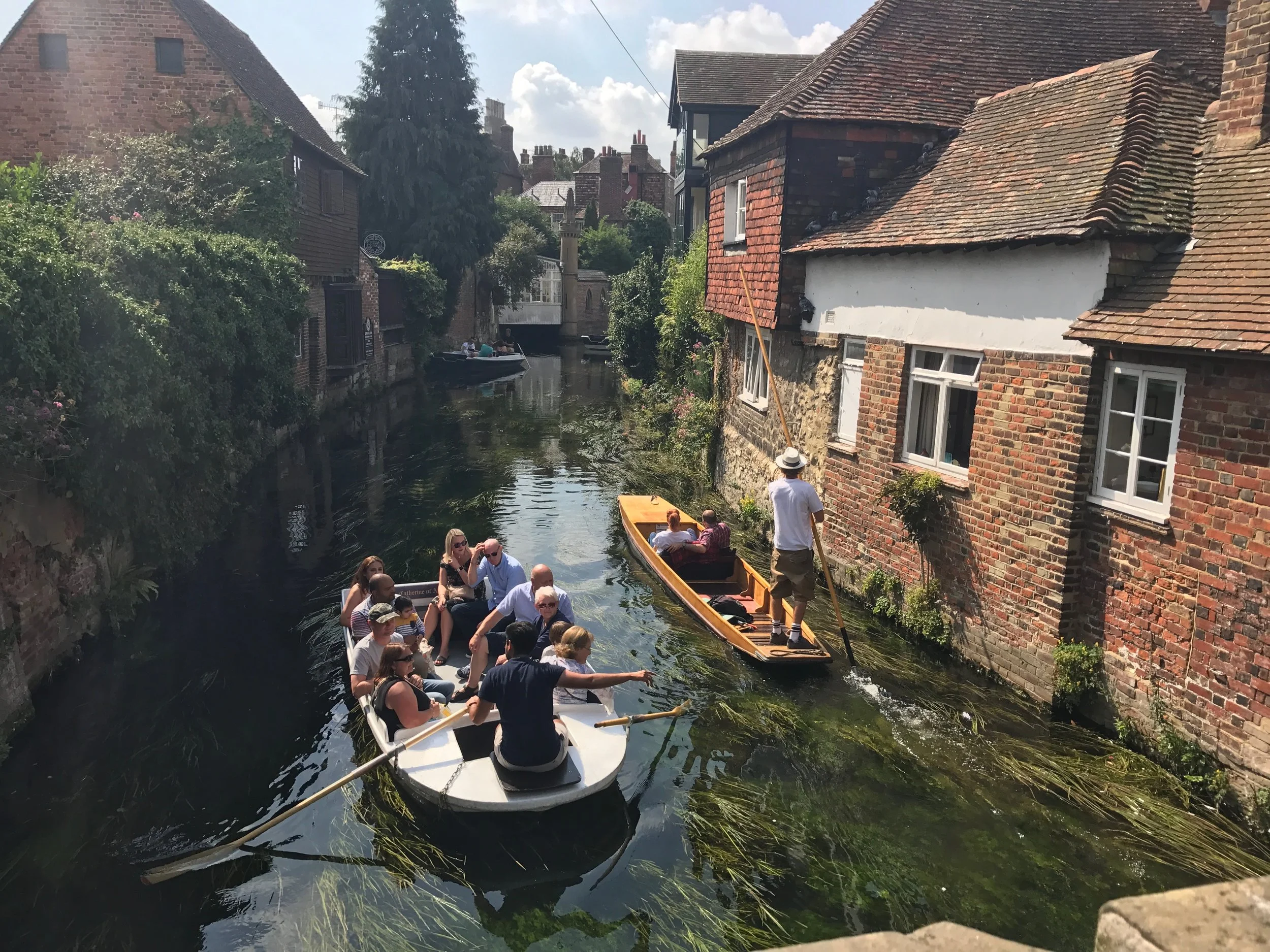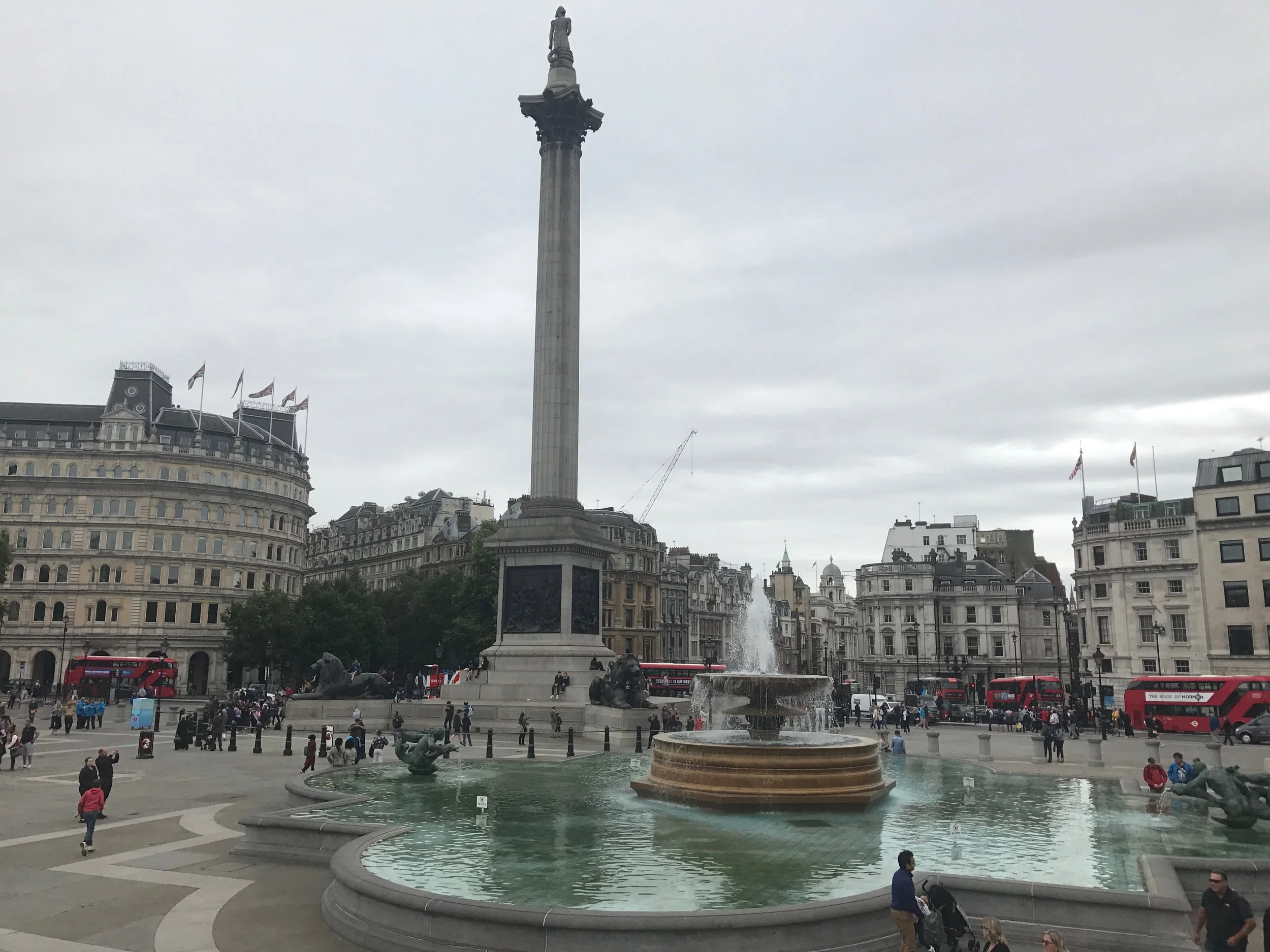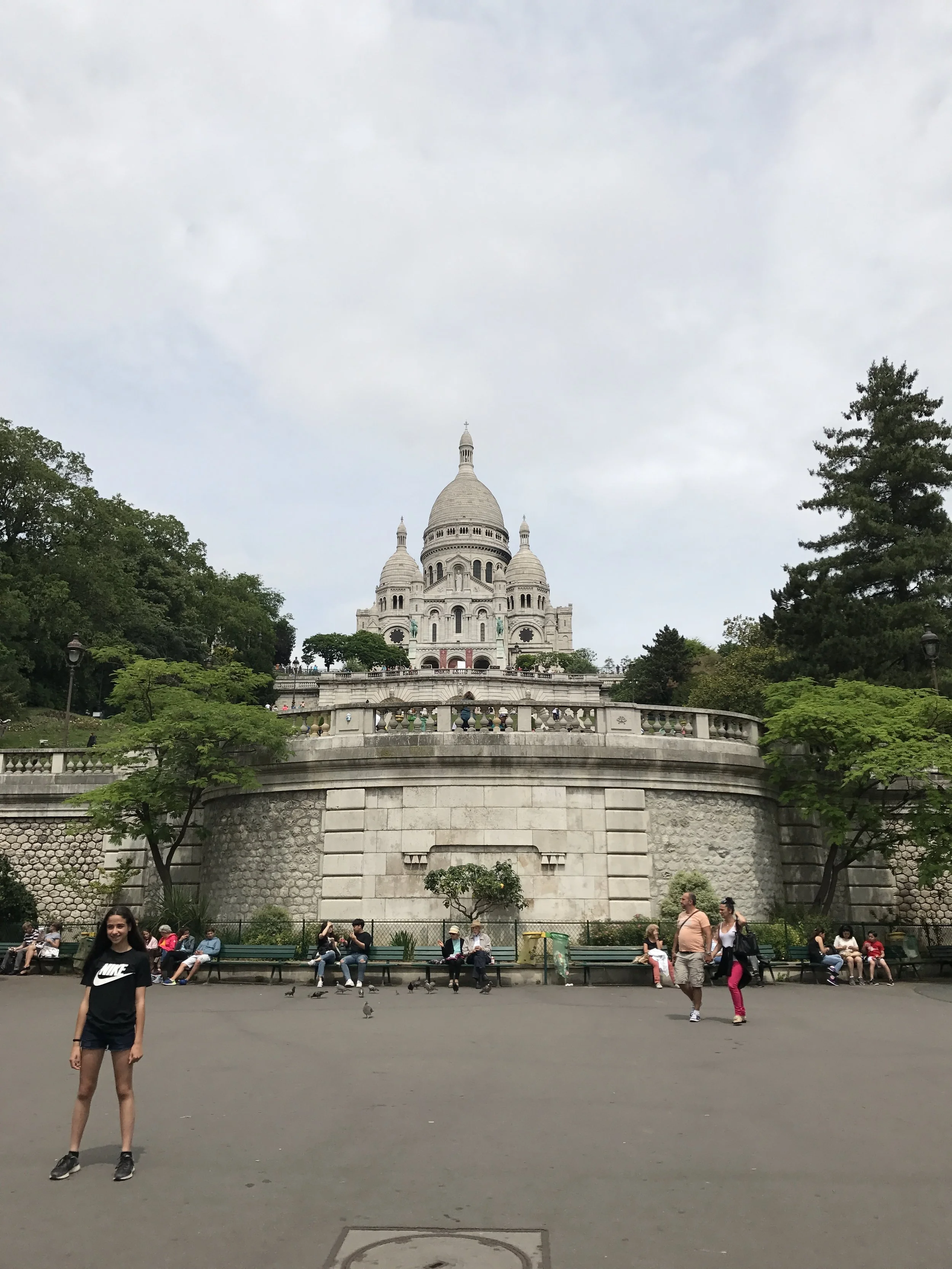Disappearing into England
On a train ride through Holyhead I spotted the cows on the golf course. Several men with plaid bags slung across their shoulders were attempting to shuffle them out of the way. I imagine that to a cow, a golf course and a pasture look like the same thing. One man went ahead and hit his ball anyway.
The train supplied us to Bath in the dark where the honey-colored stones of the city reflected a clean moonlight. “It smells like perfume,” I told Corey. We taxied to the house, and the previous dog sitter greeted us. He was young and an actor. He made us tea and wrote down a list of the best places to visit in town. I told Corey that all the people we’d met on our trip always led such exotic sounding lives.
“It only sounds exotic to you. When they say they’re going to another country, that’s like the same as us going to Pennsylvania,” Corey told me.
The next morning the actor left, we fed the pets per the instructions, and we headed into town without a plan. Bath smelled just as good as it had the night before. We learned that in the Georgian times people would come here from all over England to “take the waters.” Apparently, a volcanic heat source lies underneath the city, giving the water of Bath the power to heal leprosy, arthritis, bad moods, and basically anything else. Only they eventually found out that the water was really giving people meningitis.
Now, the Roman Baths are just a tourist destination. However, people with more money go to actual Bath spas for pampering, relaxation, and (filtered) healing water.
The dog we were watching apparently hadn’t been drinking the groundwater, as he suffered from arthritis in his legs. But one morning his slow meandering turned into an energized trot. This longer walk led us down a lane that collided with the facade of a castle. Just the front, no sides, no doors, no windows. Built with large medieval stones, this frontispiece had the sole purpose of giving the neighbors a better view. It was a fun game to imagine the insides of a castle that didn’t exist, who lived there, and what they might be doing at this very moment.
The home we stayed in was too characteristic, too full of history to pretend it was mine or make up a story about the owner: curated bookshelves, family portraits, cluttered office desks, a leather couch with impressions of bodies that had lived here much longer than me. So when the family finally came back and began cooking us dinner, I already had an idea of who to expect — intellectual parents, their ex-army son, their doctor daughter, and other exotic sounding children I’d hear about but wouldn’t meet.
They wanted to talk Trump, theorize about American democracy, dissect Brexit with a U.S. perspective. So naturally they got us drunk. This proved unhelpful at five in the morning, the time we had to catch our bus to Canterbury. It was a six hour ride, and I avoided the gaze of a woman in the back who heard me get sick in the 2x2 bathroom.
While in Canterbury, our luck with back-to-back house sits seemed to be running out. The direction and purpose that comes with making commitments was suddenly lost. It was back to renting a room, just us, not quite needed or expected anywhere. I picked out an inexpensive cottage in a nearby village.
Our Canterbury host was nice enough to drop us off at the address I provided him with. He drove off and I began to look for the “ornate iron gate” that supposedly would lead to the cottage. There were no less than ten of these gates. From where I stood on the sidewalk I saw the village’s only pub with boards up in the windows. “Will reopen soon” was spray painted on some plywood.
One of the gates turned open for us, then we went through another gate, and then we saw a backyard door with a white sheet of printer paper taped to it. I recognized the Airbnb logo.
We ended up in someone’s backyard, but apparently we were in the right place. Where a shed might’ve stood there was a tiny brick cottage. I turned the old-timey key and we had to step down to get inside to the welcoming interior: a bed, a sofa, tea cups, everything down to the quintessential brick fireplace. The bed had to be pulled down from the wall, and I made a nest for myself in the covers. I felt that if I pulled my head under the blankets I would be disappeared from the world completely. I tried to think of myself like a dot on a map, but place isn’t that logical. Like going from New York to London on a plane and finding your dot caught in the middle of the Atlantic.
When I peaked out from the covers a moving shape caught my eye. Something crawling through the open window. A cat. Possibly he was mistaking the cottage for part of the main house. I had the urge tell him that this wasn’t where he belonged, but instead I cooed, “How did you find me?” He bounded onto my lap and he stayed for a while, eventually disapearing back through the window into the black night.







